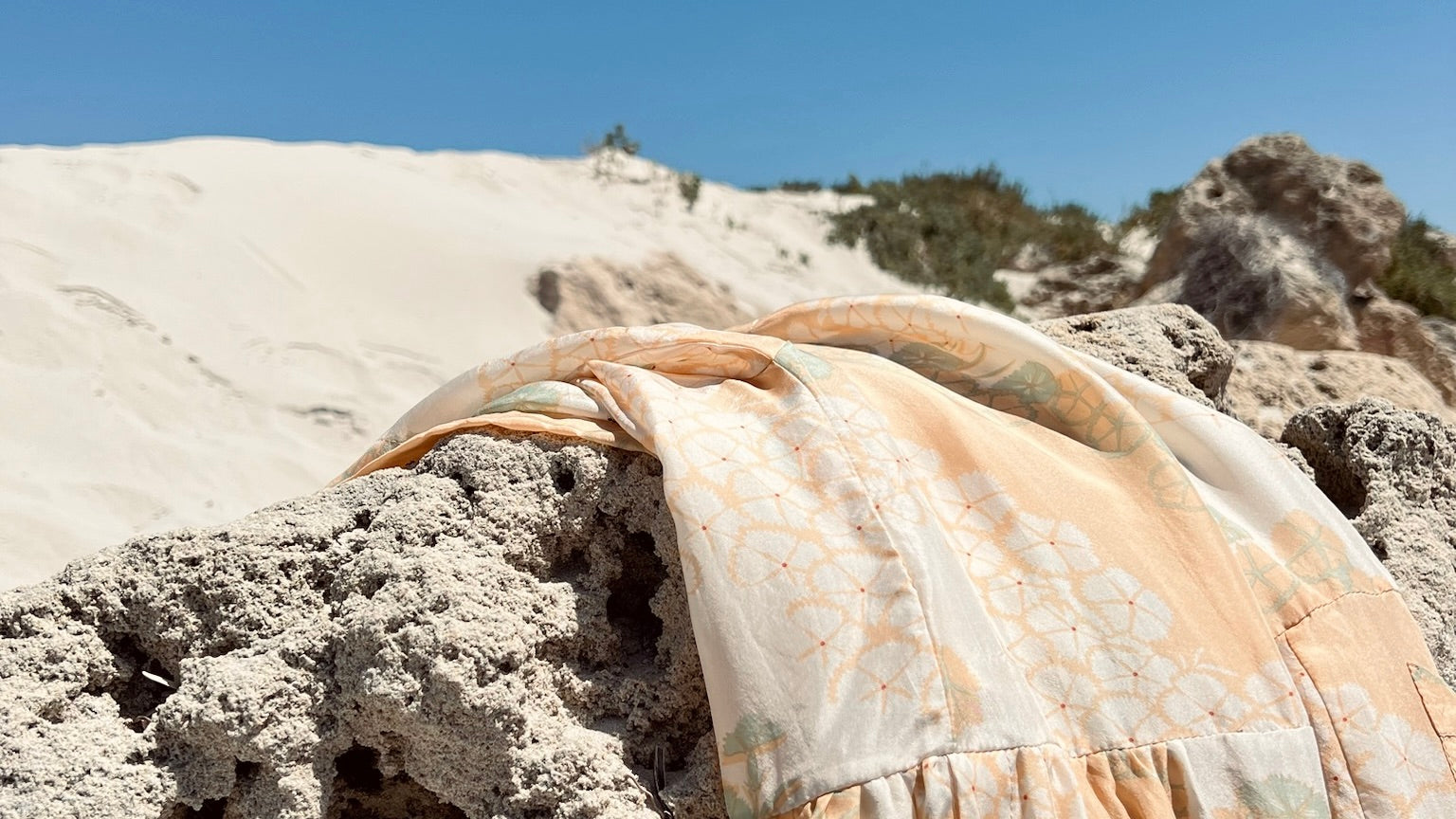ETHOS
CARBON FOOTPRINT

At FLANNEL, we have committed to both our customer and our planet to continue to reduce, reuse and recycle across all aspects of our business. Sustainability is a core principle in our day-to-day operations. We care deeply about the environment and prioritise processes that help to protect it and lighten our footprint.
In store, we offer our customers the choice to take their purchases home in our undyed cotton garment or string bags which can be reused at the grocery store or local farmer's market. In addition, each FLANNEL garment comes packaged in 100% recycled plastic.
We continue to implement actions to reduce our emissions from transportation. Our team is working hard to allow for sea freight over air freight as much as possible. Sea freight emits less than a quarter of the CO2e greenhouse gases than air freight.
We are also minimising the transportation of our products, which in turn minimises our carbon footprint. We have implemented a number of processes to make our product allocations between stores more efficient, including consolidation of stock movements and a reduction in the number and frequencies of transfers.
At FLANNEL, we prioritise the quality and finishes of our garments. As a result we receive very few returns, limiting our carbon emissions from transportation and clothing waste. We are always encouraged to see our customers wearing old FLANNEL with new thanks to the keepsake nature of our collections.
We have introduced several of our production houses to each other in both Indonesia and India with the intention of reducing waste and emissions. We encourage them to share resources, bulk order trims and fabric, and freight their product together. We've watched as working relationships flourished, building a sense of shared community as we work towards the common goal of reducing our carbon footprint.
Frequently Asked Questions
They are air-dried to minimise energy consumption.
Our products travel from factories in cotton bags to protect them from damage. When purchased, your garment remains in these same cotton bags for you to reuse as a wash-bag or travel bag for intimates, travel bag for make-up, or storage for fruit and vegetables. If you do not wish to take your garment in the cotton bag, we will happily keep and send back to our factories to reuse in our next shipment.
We also provide recyclable hangers to customers who wish to receive their garments hanging.
Our team is working hard to allow for sea freight over air freight as much as possible. Sea freight emits less than a quarter of the CO2e greenhouse gases than air freight.
We are also minimising the transportation of our products, which in turn minimises our carbon footprint. We have implemented a number of processes to make our product allocations between stores more efficient, including consolidation of stock movements and a reduction in the number of frequencies of transfers.
At FLANNEL, we prioritise the quality and finishes of our garments. As a result we receive very few returns, limiting our carbon emissions from transportation and clothing waste.
We are always encouraged to see our customers wearing old FLANNEL with new thanks to the keepsake nature of our collections.
FLANNEL's zippers and metal hardware are ordered from YKK, a global trims supplier recognised internationally for its consistent quality. Where possible, we use their NATULON® zipper range, made predominantly from recycled PET bottles.
The fabric used in our swimwear is made in Italy and is predominantly composed of recycled nylon (78% recycled nylon, 22% lycra). As our swimwear is manufactured in Indonesia, we used to source the fabric locally. However, we decided to make the change in 2021 to this Italian made recycled nylon swim fabric as the recycled nylon component aligned with our circular fashion values. The quality is also superior in terms of feel and durability, creating a longer lasting, high-quality product.
Our production houses predominantly source fabric and trims (excluding zippers and metal
hardware) from the local markets and textile mills. In doing so, they support their community and reduce the carbon footprint associated with freighting fabric between countries.
Any fabric preparation processes such as washing, dyeing and printing are done locally using either natural dyes of dyes with a high environmental protection rating.
After processing, the fabric is usually air dried rather than machine dried to further limit energy consumption.

